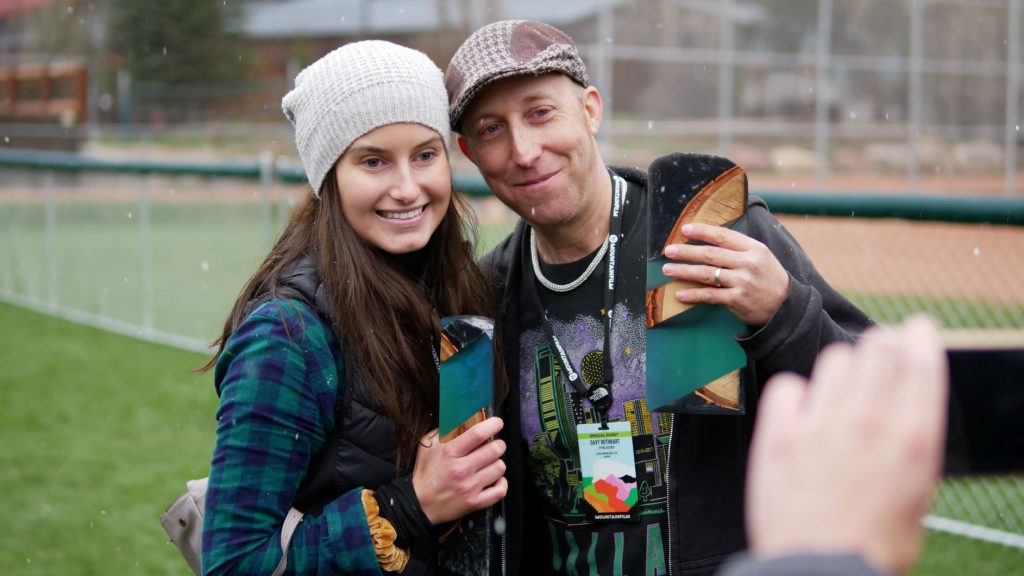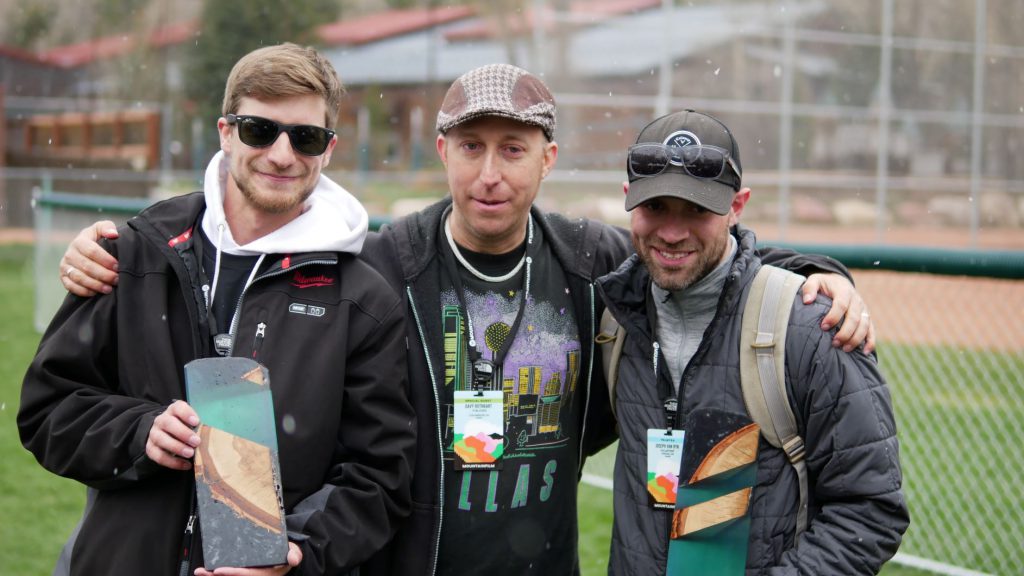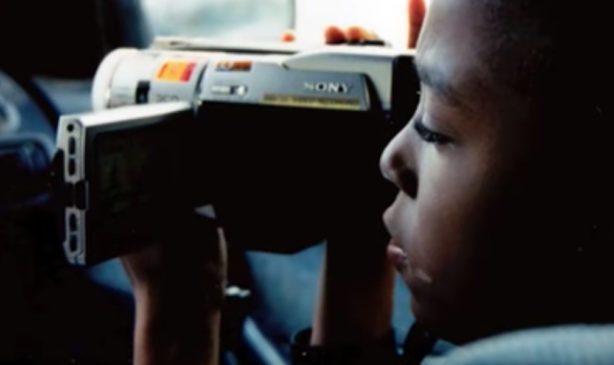By Veronica Johnson and Joe Van Ryn with updated content from Madeline Peterson
One of the amazing films showing during this year’s University Theme “Careers, Conflicts, and Callings” Film Series is Davy Rothbart’s documentary 17 Blocks. This film shows that the careers we are all pursuing at Winona State University are, simply, a privilege. Not everyone can afford an education; not everyone can pursue a career. For those who face poverty and health concerns that seem insurmountable, a career might seem impossible. But we students, the faculty, and members of the community all need to recognize that the careers we imagine ourselves in are products of our own upbringing and education.
17 Blocks is different from the other films in the series. It doesn’t deal as directly with any one career. However, its underlying emotion and gravity show that every job, every career is important–and deserves to be recognized. Please join us for this special film–and an appearance by its director, Davy Rothbart–at 7 pm Tuesday, October 22, in Miller Auditorium (Stark 103).
Over the course of 20 years, Rothbart followed the Sanford-Durant family in Washington, D.C., recording them during some of their most private and emotional moments. The title of his film, 17 Blocks, refers to the number of blocks the family lived from the U.S. Capitol, in a low-income neighborhood plagued with gang violence and drugs. In addition to Rothbart’s footage of the family, the film uses the family’s own home videos to tell their story. 17 Blocks is centered around the youngest member of the family, Emmanuel Sanford. We are introduced to Emmanuel through a collection of self-recorded videos where he talks about his life and introduces his family members to the audience. As the viewer, we become emotionally involved in the Sanford-Durant family. We watch them grow up, struggle to make ends meet, and deal with several setbacks and a major tragedy.
17 Blocks employs a mix of fly-on-the-wall observational filmmaking along with interviews from the family. This kind of direct cinema results in a raw, unfiltered look into what life is like for the Sanford-Durants. Without any voice-over narration, the audience is completely immersed into the family’s lives. We see Emmanuel’s mother, Cheryl, and brother, “Smurf” (the nickname by which he is always referred to), struggle with drug addiction. Cheryl expresses her wishes of when she was young to be a movie star like Marilyn Monroe, but she had her children and her life took another direction. Raising three kids as a single parent, Cheryl struggles to make ends meet for her family. This is compounded by her drug use and inability to emotionally and financially provide for her children.

Young Emmanuel’s story is at the heart of 17 Blocks’ narrative
Crime is prevalent in the Sanford-Durants’ neighborhood and young Emmanuel and his family have to deal with the consequences daily. At one point in the film, Emmanuel videotapes two men punching and kicking another man who supposedly owes them money. However, even though he is young, Emmanuel is smart enough to recognize he wants more out of life than what the streets have to offer. Thus, Emmanuel decides he wants to become a fire fighter. He has a bright outlook on life and wants to make his family proud. But the film asks–and eventually answers–the question: is there any place in these 17 Blocks for a bright, scholastic kid like Emmanuel who doesn’t drink or do drugs, who wants no part of the gang life?
Near the end of the film we are introduced to Emmanuel’s nephew, Justin, who resembles Emmanuel’s personality and character. He dreams of becoming a firefighter, enjoys school work, and takes part in constructive extra-curricular activities like karate. Viewers feel a sense of hope in a sea of darkness with the telling of Justin’s story and his promising future and optimistic view of life.
After Rothbart develops a relationship with Justin, he takes him on a camping trip with other kids in the neighborhood. Rothbart sees first-hand the difference that these trips can make on kids that for all their lives have been so confined to a small area. These kids get to see the mountains and natures beauty for the first time, and Rothbart hopes that these trips will reduce the amount of gang violence and drug abuse, giving these kids a fresh new view on life. The nonprofit organization created by Davy is named Washington-to-Washington and focuses on getting children from the inner city out into nature and out of the streets.
17 Blocks speaks to a much larger issue that our nation faces. It is extremely emotional to watch at times dealing with harsh topics that are difficult for many of us to talk about or see the effects of first hand on screen. While the viewer becomes emotionally invested in the family and shares their pain when they experience a tragic loss, the realization that this happens every day in every major city settles in, especially as the film comes to a close. 17 Blocks humanizes a particular demographic faced with issues many people seem to brush off or ignore. All around the United States there are families that experience the same struggles. Thus, the film serves as a wake up call for the audience, using the Sanford-Durants’ experience to shed light on an epidemic that’s tearing apart families and communities all over our country.
Rothbart’s documentary shows us that careers are a privilege that not everyone can afford. Not everyone has the opportunity to go to a great university such as Winona State University. Every one of us watching the film here enjoys the privilege of looking forward to a career in our chosen fields. But we also need to rely sometimes on our friends, our mentors, and our communities. Help is available–if you know how to look for it. If you are struggling to find your path, asking for help from someone is a great option. And every job is important–whether the work is in food service, construction, technology, social work, education, or government. The world needs all of these people to strive. And at the end of the film we see how members of the family do finally see that a network is in place to help them succeed.
When we were at the Mountainfilm Film Festival this past May, Rothbart’s film took home both the Jury award for “Best Feature” as well as the “People’s Choice” Award. As Rothbart accepted these awards, tears filled his eyes and he was extremely humbled. He spoke of how much these awards mean to both him and the Sanford-Durant family and how excited he was to tell the family about the film’s recognition and accomplishments. The next day, despite his busy schedule, Rothbart was kind enough to sit down and speak with us WSU Film Studies students about the creation of 17 Blocks. He talked about the importance of the issues discussed in the film and stressed the importance of getting kids from these big cities out to explore nature through his non-profit organization, Washington-to-Washington.
Our time with Davy Rothbart was inspiring. He is incredibly kind, patient, and thoughtful. It was easy to tell how important 17 Blocks is to him. At each of the film’s four screenings and the awards ceremony, Rothbart became very emotional due to the fact that he knows the family so well and had been right with them during their most difficult times. However, Rothbart wasn’t the only one to get emotional after experiencing the film: those who attended the screenings were also choked up with tears, including all of us students. After every screening Rothbart was congratulated by those in the audience who were crying, hugging, and praising him for telling this story.
Thanks to Davy Rothbart for his courageous, groundbreaking film, and our best to the Sanford-Durant family for the future. Please don’t miss this opportunity to see this wonderful film Oct. 22 at 7 pm, highly deserving of the 2019 Mountainfilm Jury and Audience awards, and completely worthy of your time. Follow us on Facebook for event reminders and check out our whole series right here on POVwinona.


Veronica Johnson (above), Kolten Merk (left), and Joe Van Ryn (right)
Film students were lucky enough to share a special moment with director Davy Rothbart–and his Audience and Jury trophies–at the 2019 Mountainfilm Award Ceremony. Photo Credits: Harrison McCormick


Trackbacks/Pingbacks